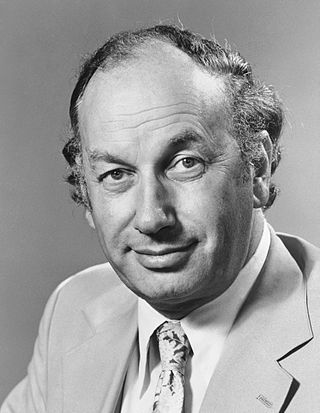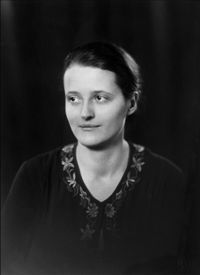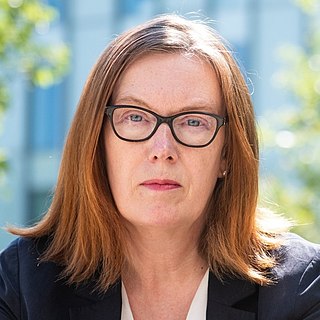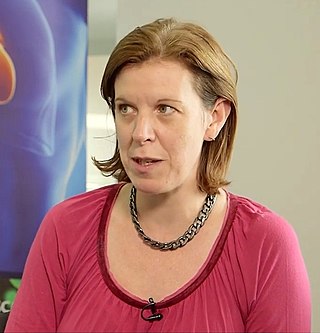
Sir John Robert Vane was a British pharmacologist who was instrumental in the understanding of how aspirin produces pain-relief and anti-inflammatory effects and his work led to new treatments for heart and blood vessel disease and introduction of ACE inhibitors. He was awarded the Nobel Prize in Physiology or Medicine in 1982 along with Sune Bergström and Bengt Samuelsson for "their discoveries concerning prostaglandins and related biologically active substances".

N-acetyltransferase (NAT) is an enzyme that catalyzes the transfer of acetyl groups from acetyl-CoA to arylamines, arylhydroxylamines and arylhydrazines. They have wide specificity for aromatic amines, particularly serotonin, and can also catalyze acetyl transfer between arylamines without CoA. N-acetyltransferases are cytosolic enzymes found in the liver and many tissues of most mammalian species, except the dog and fox, which cannot acetylate xenobiotics.

The British Pharmacological Society is the primary UK learned society for pharmacologists, concerned with research into drugs and the ways in which they work. Members work in academia, industry, regulatory agencies, and the health services, and many are medically qualified. The Society covers the whole spectrum of pharmacology, including laboratory, clinical, and toxicological aspects.

N-acetyltransferase 2 , also known as NAT2, is an enzyme which in humans is encoded by the NAT2 gene.

Marthe Louise Vogt was a German scientist recognized as one of the leading neuroscientists of the twentieth century. She is mainly remembered for her important contributions to the understanding of the role of neurotransmitters in the brain, especially epinephrine.

Dame Carol Vivien Robinson, is a British chemist and former president of the Royal Society of Chemistry (2018–2020). She was a Royal Society Research Professor and is the Dr Lee's Professor of Physical and Theoretical Chemistry, and a professorial fellow at Exeter College, University of Oxford. She is the first director of the Kavli Institution for Nanoscience Discovery, University of Oxford, and she was previously professor of mass spectrometry at the chemistry department of the University of Cambridge.

Dame Angela Ruth McLean is professor of mathematical biology in the Department of Biology, University of Oxford, and Chief Scientific Adviser to the UK Government.
Joshua Harold Burn FRS was an English pharmacologist and professor of pharmacology at Oxford University.

Benjamin Guy Davis is Professor of Chemical biology in the Department of Pharmacology and a member of the Faculty in the Department of Chemistry at the University of Oxford and a Fellow of Pembroke College, Oxford. He holds the role of Science Director for Next Generation Chemistry (2019-2024) and Deputy (2020-) and Interim Director at the Rosalind Franklin Institute.
Alison Brading was a British scientist who studied the physiology and pharmacology of smooth muscle, particularly in the urinary tract.

Lalita Ramakrishnan is an Indian-born American microbiologist who is known for her contributions to the understanding of the biological mechanism of tuberculosis. As of 2019 she serves as a professor of Immunology and Infectious Diseases at the University of Cambridge, where she is also a Wellcome Trust Principal Research Fellow and a practicing physician. Her research is conducted at the MRC Laboratory of Molecular Biology, where she serves as the Head of the Molecular Immunity Unit of the Department of Medicine embedded at the MRC LMB. Working with Stanley Falkow at Stanford, she developed the strategy of using Mycobacterium marinum infection as a model for tuberculosis. Her work has appeared in a number of journals, including Science, Nature, and Cell. In 2018 and 2019 Ramakrishnan coauthored two influential papers in the British Medical Journal (BMJ) arguing that the widely accepted estimates of the prevalence of latent tuberculosis—estimates used as a basis for allocation of research funds—are far too high. She is married to Mark Troll, a physical chemist.

Irene Mary Carmel Tracey is Vice-Chancellor of the University of Oxford and former Warden of Merton College, Oxford. She is also Professor of Anaesthetic Neuroscience in the Nuffield Department of Clinical Neurosciences and formerly Pro-Vice-Chancellor at the University of Oxford. She is a co-founder of the Oxford Centre for Functional Magnetic Resonance Imaging of the Brain (FMRIB), now the Wellcome Centre for Integrative Neuroimaging. Her team’s research is focused on the neuroscience of pain, specifically pain perception and analgesia as well as how anaesthetics produce altered states of consciousness. Her team uses multidisciplinary approaches including neuroimaging.

Dame Sarah Catherine Gilbert FRS is an English vaccinologist who is a Professor of Vaccinology at the University of Oxford and co-founder of Vaccitech. She specialises in the development of vaccines against influenza and emerging viral pathogens. She led the development and testing of the universal flu vaccine, which underwent clinical trials in 2011.

Fiona Hamilton Marshall is a British pharmacologist, founder and Senior Vice President of Discovery, Preclinical & Translational Medicine at Merck & Co. She will become the next president of the Novartis Institutes for BioMedical Research. She previously served as Chief Scientific Officer at Heptares Therapeutic, where she was Vice President of the Japanese biopharmaceutical company Sosei. She was elected Fellow of the Academy of Medical Sciences in 2016 and the Royal Society in 2021.
Frances Mary Platt is a British biochemist and pharmacologist who is a professor at the University of Oxford. Her research investigates rare genetic disorders known as lysosomal storage diseases, progressive conditions that lead to neurodegeneration. She was elected Fellow of the Royal Society in 2021.
Clare Bryant FLSW is a British veterinary scientist and clinical pharmacologist who is a professor at the University of Cambridge. She specialises in innate immunity. Bryant is a Fellow of Queens' College, Cambridge and of the British Pharmacological Society.

Susanna Jane Dunachie is a British microbiologist who is Professor of Infectious Diseases at the University of Oxford. Her work considers microbiology and immunology to better understand bacterial infection and accelerate the development of vaccines. She has focused on melioidosis, scrub typhus and tuberculosis. During the COVID-19 pandemic, she studied T cell immunity to severe acute respiratory syndrome coronavirus 2.
Pauline Rudd is a British biochemist and Professor at the Microbiome Institute, University College Cork. She is a founder of Wessex Biochemicals, a Fellow of the Royal Society of Medicine and was awarded the James Gregory Medal in 2010.
Akane Kawamura is a British chemist who is professor of chemistry at Newcastle University. Her research considers the chemistry of epigenetics. She was awarded the Royal Society of Chemistry Jeremy Knowles Award for her development of chemical probes to study biological processes.
Joanne P. Webster is a British epidemiologist who is the Royal Veterinary College Chair in Parasitic Diseases, Director of the Centre for Emerging, Endemic and Exotic Diseases and Professor of Infectious Diseases at Imperial College London. She is a Fellow of the Royal Society of Biology and Fellow of the Academy of Medical Sciences.












